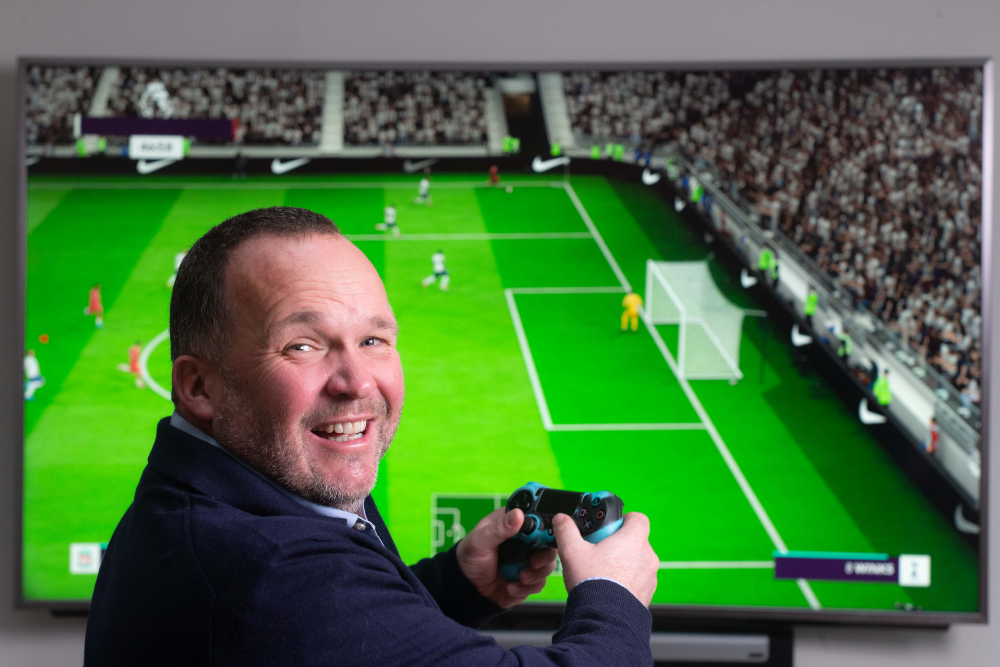Podcast Ep 140: Hybrid working will require higher quality broadband in all parts of the country urges Pure Telecom’s Paul Connell.
You could say Paul Connell likes to keep his finger on the pulse and knowing what people want is what keeps him in business.
His business Pure Telecom, a high-speed broadband and telecoms provider that in some ways is the ‘Switzerland of digital’ in that it works as a neutral vendor while working with most of the providers, routinely surveys the public to understand their moods and perceptions.
“If I gave my kids the choice between broadband and TV, the TV would get chucked out the window in two seconds”
It would be reasonable to think that broadband actually saved Ireland’s – and many businesses’ – bacon during the pandemic when people had no choice but to work remotely.
But the reality is that Ireland is still floundering when it comes to rolling out high-quality broadband. The National Broadband Plan has barely left the starting marks and all of this is happening while the speeds are increasing in areas that are well served.
That said, many of those who can work from home will do everything they can to hold onto this privilege. A recent Pure Telecom study found that 97% of Gen Z (people aged 18 to 23) office workers are more likely to work in the office in some capacity following the easing of Covid-19 restrictions than all other older generations.
Ireland needs more connectivity
So if broadband is so highly prized and necessary, why aren’t people making more of a racket about not getting it in sufficient quality and quantity.
Connell has his own theories on this. “The speeds have gone through the roof, there’s no doubt about it. The average household, never mind a business, will get by with 100Mbps, but actually it’s now 2Gbps where it’s at for some consumers. Do they need that much? I don’t think so. But speed isn’t the issue, it’s coverage and that has always been the problem.
“The pandemic, the cost of living crisis, our lifestyle changes, all of that has been knocked on its head now and broadband is an essential commodity. If I gave my kids the choice between broadband and TV, the TV would get chucked out the window in two seconds. Broadband is now more essential than ever. Mobile broadband data usage has gone up 450% in the last three years while ARPU (average revenue per user) has gone down 20%. So people are getting more and paying less, which is very interesting from a business point of view. I’ve seen a lot of broadband providers increase their prices in the past year. I haven’t done it, but it’s inevitable.”
If broadband has become such a lifeline for consumers, businesses and ultimately workers, then why isn’t it a central theme in Ireland, or a political matter? The irony isn’t lost on Connell. “If I build a new house in Roscommon or anywhere, I would pay €30,000 to get electricity installed or €50,000 to get water installed. But if you say to someone that they’ll have to pay €500 to get their broadband installed, they would balk.”
Telecoms veteran Connell began his carer in the 1990s with GTS and was involved in building Three’s first 3G networks in Europe in the early 2000s. He founded Pure Telecom in 2002 and it has grown to be a €20m-plus per year business with more than 100,000 customers.
He points out that while much of the attention around the digital divide in Ireland has been on rural areas the reality is that many urban areas, including his own home in leafy southside Dublin, struggle to get decent connectivity.
He believes the multi-billion-euro National Broadband Plan being led by National Broadband Ireland needs to accelerate its network roll-out so all parts of Ireland can benefit. At the time of writing it is understood that only 23,000 homes have been connected out of 92,000 premises passed in rural Ireland.
His own ethos on selling broadband to consumers is to focus on customer service. “When we first started we looked at rolling out our own network but realised there was only around 8% usage of the national broadband network at the time so we decided to concentrate on what we do well – we connect customers and give them a decent price. And then we wrap them up in cotton wool and spend our money on customer support as opposed to the network because we can get network access off anyone. And that has been very successful for us.”
Asked if Pure has any ambitions to be a mobile operator, Connell demurred and said the focus is on fixed line broadband. He pointed out that 20 years ago 98% of a mobile operators’ revenues came from voice calls. But today, everything is data, making it a challenging proposition.
“Data is the predominant link. When we started Pure Telecom we were selling voice calls for 20 cents a minute. Now we’re practically giving that away.”
Despite his dismay at the lamentably slow roll-out of fibre in rural and urban Ireland, Connell believes rural Ireland will be covered. “Because like everything else, one of the greatest businesses in this country is farming. And farming is moving forwards and is becoming technologically advanced. Agri businesses will need the web as much as we do.”
But crucially, the lack of coverage in urban and rural Ireland is still an issue for the country. The situation is curious – half the country is clamouring for speeds between 100Mbps and 2Gbps while the other half is still disconnected from the 21st century.
“The quality is there, but the range is not.”



